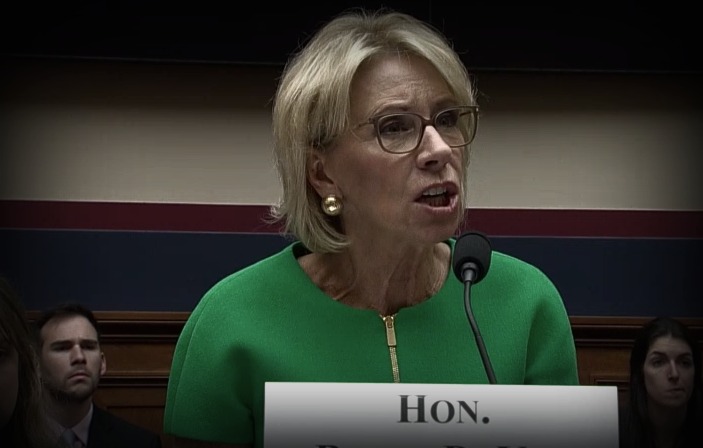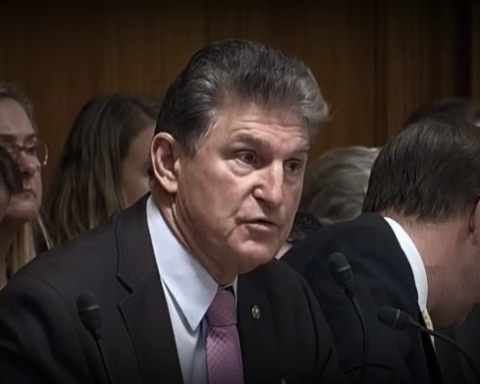A pilot program with the aim of delivering student loans through prepaid bank cards is vulnerable to a conflict of interest, Education Secretary Betsy DeVos was warned during a hearing on Tuesday.
DeVos, however, dismissed those concerns, and later appeared to know very little at all about the card program.
The Education Department’s Office of Student Aid is planning to launch the pilot program this year, dispersing loans to as many as 100,000 students via prepaid cards, similar to debit cards. The initiative would be administered by a vendor that has not yet been chosen by the department.
During Tuesday’s proceedings before the House Education and Workforce Committee, Rep. Mark Takano (D-Calif.) pressed Secretary DeVos about three department officials with close ties to the credit card industry, including A. Wayne Johnson, the head of Federal Student Aid.
“All have previous ties to financial firms like MasterCard, Citibank, and Bank of America, and they are working on implementation of the pilot card program,” Takano said, raising the possibility of conflicts of interest.
“Can you testify today that the pilot program will not be implemented by the best-connected firm, but by the firm that will best serve our students,” the congressman asked.
“All of those who work within the Department of Education take their ethics agreements very seriously and are bound to them,” Secretary DeVos responded, without commenting on the specifics of the program.
The student load card initiative, announced by the department in January, has been received with skepticism from education groups and other lawmakers. Democratic Senators, including Dick Durbin (D-Ill.), Elizabeth Warren (D-Mass.), and Sherrod Brown (D-Ohio), wrote a letter to Secretary DeVos earlier this year with concerns about the program.
They wanted to know what sort of spending data would be collected about students, and if it would be used by financial firms to market other products in the future. Senators also inquired about the types of spending restrictions that would be applied to the card.
To Rep. Takano’s point, the letter also asked what steps the Federal Student Aid office is taking to “safeguard against conflicts of interest in the pilot program.”
On Tuesday, Rep. Alma Adams (D-N.C) also asked why the program was even necessary, but Secretary DeVos didn’t appear familiar with basic details.
“I’m curious about what the rational for these cards are,” asked Rep. Adams.
“I’m sorry?” DeVos responded, appearing to not understand the question.
“He talked to you about the student loan disbursements and the cards,” Rep. Adams said, referring to the prior questioning from Rep. Takano.
“Cards?” DeVos responded, again confused. Adams moved on to her next question.
The Department of Education’s plan for prepaid student loan cards is far from novel. Schools have previously offered student loans on cards backed by banks. But those arrangements often carried high transaction costs, siphoning off federal aid to banks through fees.
The Obama Administration issued a regulation in 2015 preventing schools from leveling “excessive and confusing fees” on students using financial aid cards.









